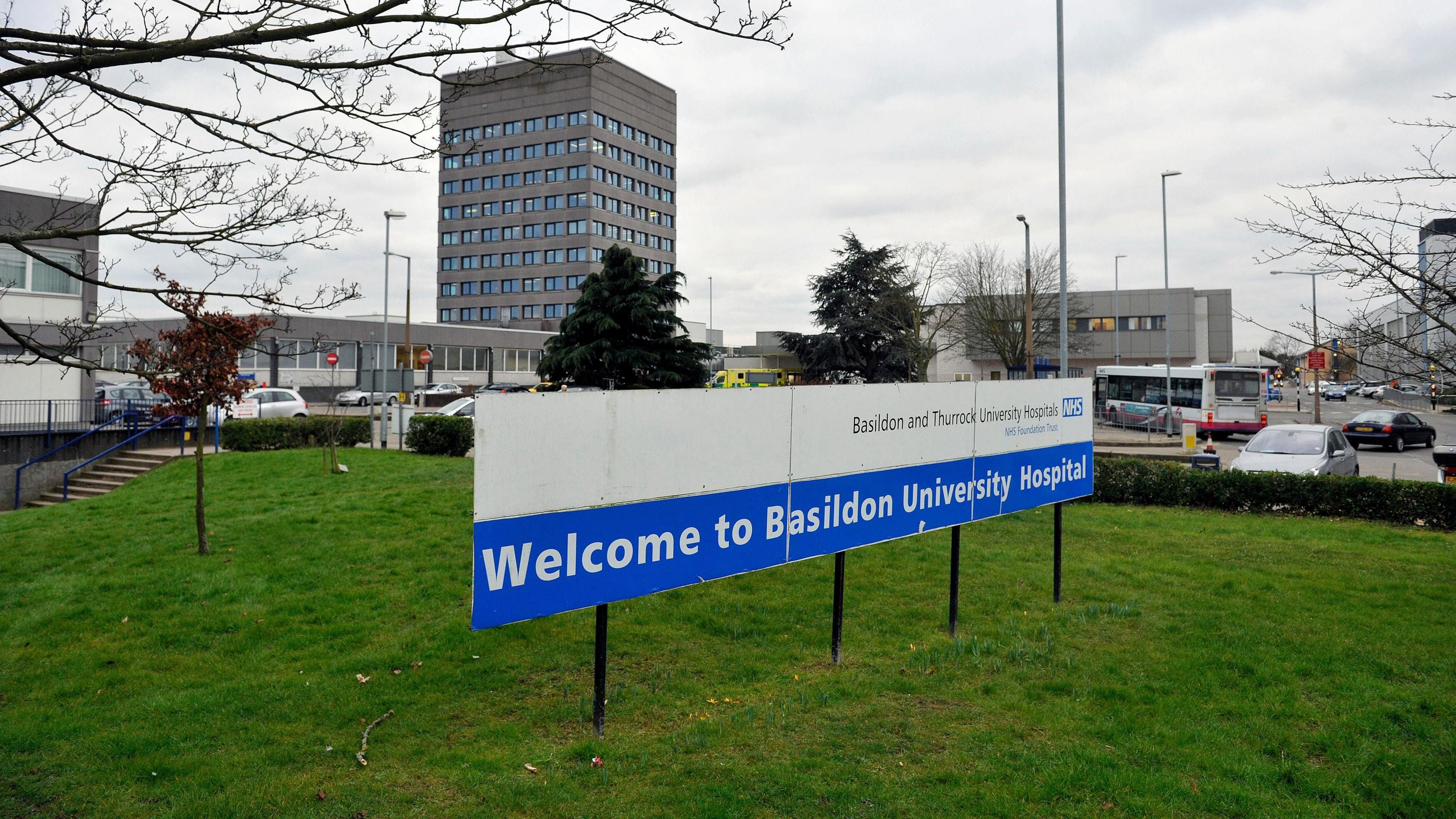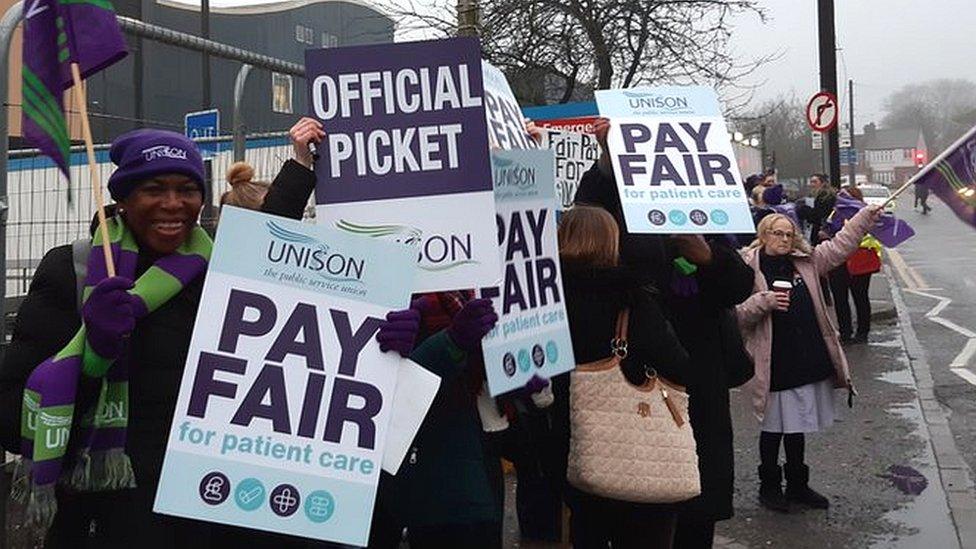Hospital staff send 400 letters demanding fair pay

Staff had hoped to deliver the letters to the trust during a board meeting at Basildon Hospital
- Published
More than 400 open letters from health workers have been sent to a hospital trust asking for fair pay, their union has said.
Unison said healthcare workers at Broomfield, Southend and Basildon hospitals in Essex had been on the end of "historic underpayments related to incorrect banding".
Band two staff should only undertake personal care and should not be carrying out clinical duties such as taking blood or carrying out electrocardiograms, the union said.
The Mid and South Essex NHS Foundation Trust (MSEFT) said it was working to "uplift and back pay staff" which should be "completed by the end of this month".
A Unison spokesperson said the issue was previously raised with the trust in 2020.
Staff including healthcare assistants, maternity support workers and theatre assistants planned to give the letters to the chief executive in person during a board meeting in Basildon Hospital on Thursday, the union said.
“These workers are a vital part of the NHS but they’ve been ripped off for years, with the trust using them to provide care on the cheap," said Sam Older, the union's eastern regional organiser.
“Matthew Hopkins (chief executive) and the board may want to hide from healthcare support workers, but staff won’t be shrugged off.
"The trust must do the right thing and pay staff what they deserve.”
According to the government website, the basic salary for healthcare assistants varies between £22,000 and £28,000.
Selina Dundas, chief people officer at MSEFT, said the trust "responded quicker than most to offer back pay to our Band 2 to 3 staff" and had met with union representatives "several times to discuss the issue".
"We are now working to uplift and back pay staff that may have been missed in the initial round of uplifts, and expect to have this completed by the end of this month," she added.
Follow East of England news on Facebook, external, Instagram, external and X, external. Got a story? Email eastofenglandnews@bbc.co.uk, external or WhatsApp 0800 169 1830
Related topics
Related Internet Links
Around the BBC
- Published11 March 2024
